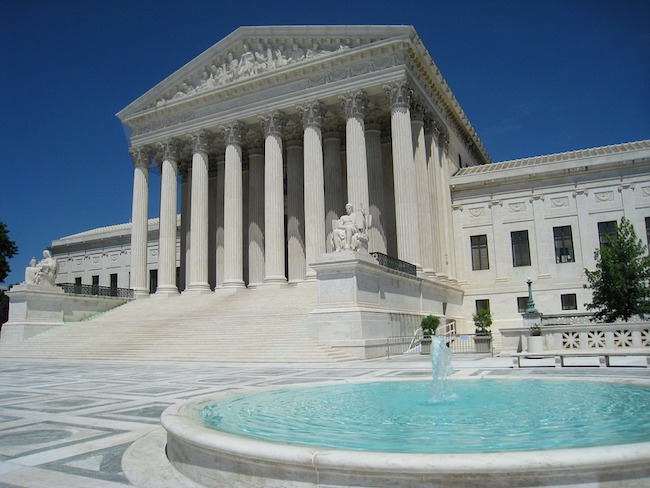The Supreme Court Case that Could Upend Roe v. Wade by Michael L. Brown for Ask Dr Brown
On Friday, May 14, Rev. Patrick Mahoney, a Christian activist who has been on the front lines of the pro-life movement for more than 40 years, felt prompted to leave his home in Virginia and drive into Washington, DC. This was unusual for him, since he normally avoided being in DC on Fridays due to the heavy traffic jams.
But on this day, he felt a divine stirring to go to DC and spend time praying about a case that had been submitted to the Supreme Court in June 2020 but had received no response to date. Then, to his shock, on Monday, May 17, he learned that the Court had decided to hear this very case, quite out of the blue.
As the New York Times explains, “The law at issue in the case, Dobbs v. Jackson Women’s Health Organization, No. 19-1392, was enacted in 2018 by the Republican-dominated Mississippi Legislature. It banned abortions if ‘the probable gestational age of the unborn human’ was determined to be more than 15 weeks. The statute included narrow exceptions for medical emergencies or ‘a severe fetal abnormality.’”
This case, then, would serve as a direct challenge to the 1992 Casey ruling that upheld Roe v. Wade, as well as a direct challenge to Roe itself. That’s why pro-abortion critics of Dobbs raised this very concern, indicating that they recognized the real threat that his bill posed.
But, so as to remove all doubt, Mississippi Attorney General Lynn Fitch actually stated this explicitly in a detailed filing to the Court last month. There, she argued that “nothing in constitutional text, structure, history, or tradition supports a right to abortion” (p. 12).
And, holding nothing back, she wrote, “Roe and Casey are thus at odds with the straight-forward, constitutionally grounded answer to the question presented. So the question becomes whether this Court should overrule those decisions. It should. The stare decisis case for overruling Roe and Casey is overwhelming.
Roe and Casey are egregiously wrong. The conclusion that abortion is a constitutional right has no basis in text, structure, history, or tradition” (pp. 12-13).
Naturally, this has made the protests of pro-abortion activists all the more shrill. As NPR reported, “Abortion-rights defenders promptly seized on the state’s brief, noting that until now Mississippi had portrayed its appeal as far more limited.
“‘Mississippi has said the quiet part out loud. The purpose of its blatantly unconstitutional abortion ban is to have the Supreme Court overrule 50 years of precedent and allow states to ban abortions,’ said Alexis McGill Johnson, president of the Planned Parenthood Action Fund.”
The stakes could hardly be higher, as both sides of the abortion debate fully recognize. What will the outcome be?
Rev. Mahoney pointed out to me during an interview on the Line of Fire that, if the Court simply intended to deny Mississippi’s request, there would have been little reason to agree to hear the case. That’s because, to cite NPR again, “The lower courts struck down this law, like ones in a dozen other states, because it conflicts with the Supreme Court’s decision in Roe v. Wade and subsequent high court decisions over the years.”
This would suggest that some of the justices are considering overruling the lower courts, deciding to let the law stand. And they could do this without addressing Roe v. Wade. In that case, it would reopen the door to a flood of statewide, pro-life bills that have been passed in recent months. If Dobbs can stand, then perhaps these bills can stand too.
This would include the many heartbeat bills that are passing, banning abortions as soon as the embryonic or fetal heartbeat can be detected. (According to Wikipedia, “Eleven states have proposed heartbeat bills since 2018; since 2019, such bills have passed including bills in Ohio, Georgia, Louisiana, Missouri, Alabama, Kentucky, South Carolina, and Texas.” None of these bills, however, have gone into effect, being held up in the courts.)




